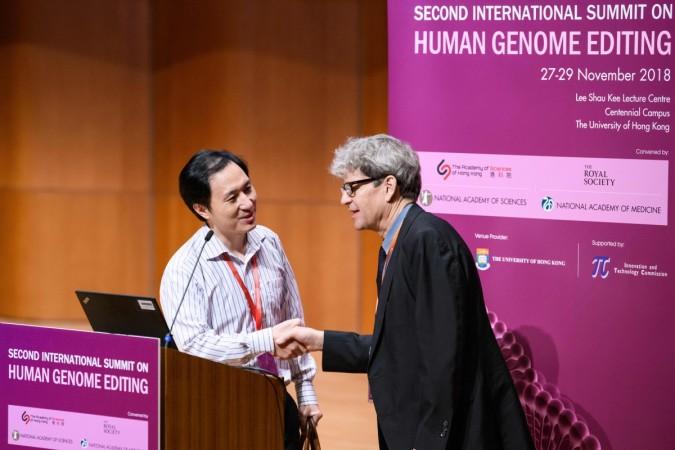
The creation of gene edited babies in China last year spooked the scientific world and earned rich reprimand for the scientist behind the project. Even as the twins, Lula and Nana, are growing up, new research has endorsed the theory that the gene edited babies can have extraordinary brain powers.
Chinese scientist He Jiankui made DNA alterations to make the babies who are resistant to HIV, but in the bargain the twins apparently have gained sharper cognitive and memory powers, the research suggests. It's also reported that He, who now faces complicated legal scrutiny in China, may have kept the truth about the cognitive superiority of the twins away from the world.
Gene editing of human embryos is banned in most of the world, and the news from China stoked fears of a looming biotech war in which nations would try to create super-intelligent humans.
"The answer is likely yes, it did affect their brains ... The simplest interpretation is that those mutations will probably have an impact on cognitive function in the twins," Alcino J. Silva, a neurobiologist at the University of California, Los Angeles, told the MIT technology Review.
He Jiankui, who works in the Southern University of Science and Technology in Shenzhen, said his team used CRISPR to delete CCR5 from human embryos, making it resistant to HIV. Gene editing of human embryos is banned in most of the world, and the news from China stoked fears of a looming biotech war in which nations would try to create super-intelligent humans.

The new research shows that deleting the CCR5 gene results in significant improvement in cognition, learning and memory. Silva and his team, who worked with Israeli scientists, say that they believe there's new proof that CCR5 acts as a suppressor of memories and synaptic connections.
Could it be conceivable that at one point in the future we could increase the average IQ of the population? I would not be a scientist if I said no. The work in mice demonstrates the answer may be yes
"We are the first to report a function of CCR5 in the human brain, and the first to report a higher level of education," says UCLA biologist S. Thomas Carmichael. Silva underscored the fact that there's a difference between correcting gene irregularities and making cognitive enhancements. Trying to make improvements in normal people by tampering with their genes is al altogether different thing. But he adds that though altering normal intelligence is something that shouldn't be done, somewhere someone will still do it.
"Could it be conceivable that at one point in the future we could increase the average IQ of the population? I would not be a scientist if I said no. The work in mice demonstrates the answer may be yes," he says.
Jiankui's shock announcement in November triggered reactions ranging from dismay to utter fright among scientists and moralists alike. He apologised following a backlash but defended the seminal nature of his work. "First, I must apologise. This leaked unexpectedly, taking away from the community before presenting in a scientific venue and without the peer review process engaged before this conference," he said.
















